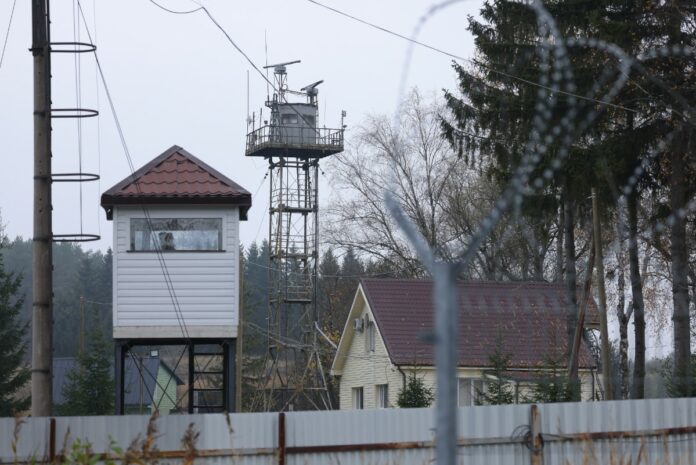Russia may be using a “secretive” electronic warfare (EW) system in its eastern outpost at Kaliningrad as widespread reported GPS disruptions plague NATO members on the alliance’s eastern flank.
“It appears that at least one culprit behind the recent wave of GPS jamming from Kaliningrad is a secretive Russian EW complex called Tobol,” Erik Kannike, of Estonia-based software company SensusQ, said in a post to X.
The Russian exclave of Kaliningrad, sandwiched between NATO members Poland and Lithuania on the Baltic Sea coast, is home to one of Moscow’s Tobol systems, he wrote.
“Russia has a massive electronic warfare effort and regularly interferes with GPS across large swathes of territory both inside Russia and in neighboring countries,” according to military and weapons expert David Hambling.
Sean Gallup/Getty Images
Several countries, including Finland, Poland and Sweden, have reported GPS disturbances in recent weeks. Sweden’s Lt. Col. Joakim Paasikivi told Swedish media earlier this month that he considered the GPS interference the result of “Russian influence activities or so-called hybrid warfare.”
“Some of the jamming appears to originate from Kaliningrad and this site is a likely source,” Hambling told Newsweek.
“The suggestion that Russian EW capabilities in Kaliningrad Oblast could so significantly impact Poland and the Baltic region is notable,” the U.S. think tank, the Institute for the Study of War, said last week.
Putting together many puzzle pieces, it appears that at least one culprit behind the recent wave of GPS jamming from Kaliningrad is a secretive Russian EW complex called Tobol (14Ts227). There are less than 10 locations in Russia where Tobol is located, and one is in Kaliningrad. https://t.co/8n9W4CDIA0 pic.twitter.com/FPD4K3lMZC
— Erik Kannike (@erikkannike) January 22, 2024
Newsweek has reached out to the Russian Defense Ministry for comment via email.
Russia has experimented with the Tobol EW system in an effort to disrupt Starlink transmissions in Ukraine, The Washington Post reported in April 2023, citing a a classified U.S. intelligence report obtained by the newspaper. Ukraine’s access to satellite networks like Starlink are critical to many of its operations and communications.
“Jamming satellite navigation will become more important as Russia is forced to defend itself against growing numbers of Ukrainian long-range drone attacks, like the ones which hit St Petersburg recently,” Hambling said. “This may have a significant impact on civil use of GPS.”
Back in March 2022, just as Russia’s full-scale war against Ukraine got underway, Finland reported GPS disturbances with aircraft signals close to Kaliningrad and along the Finnish border with Russia.
“Our pilots have noticed interference in GPS near the Kaliningrad area in the past few days,” a spokesperson for Finnish national carrier, Finnair, said in early 2022, according to Reuters.
In the first six months of 2023, Finnish Transport and Communications Agency, or Traficom, said it had received a total of 41 notifications of GPS disturbances from aircraft operating in Finnish airspace.
“We are aware that even Estonia and Latvia have suffered GPS disturbances,” the government agency said at the time. A total of 2,187 notifications were reported from outside Finland in the first half of 2023, it added.
Russia’s government said in late 2023 that its Baltic Sea fleet had conducted drills with its electronic warfare unit in Kaliningrad, practicing “suppressing enemy navigation and radio communications.”
NATO’s newest member detected further GPS disturbances at the start of this year.
“There have been disturbances in the Baltic Sea near Kaliningrad, in the Black Sea Region and in the Middle East, such as near Israel,” Traficom’s aviation chief, Jari Pöntinen, said in early January. But the agency is unable to “analyze an explanation for interruptions,” Traficom said in a statement to Newsweek at the time.
Uncommon Knowledge
Newsweek is committed to challenging conventional wisdom and finding connections in the search for common ground.
Newsweek is committed to challenging conventional wisdom and finding connections in the search for common ground.


